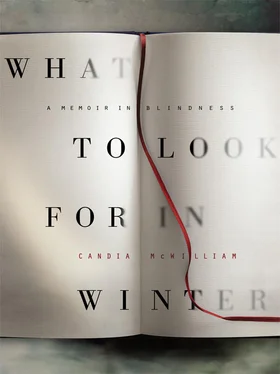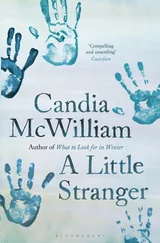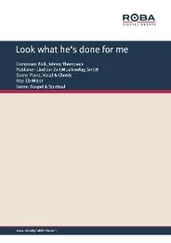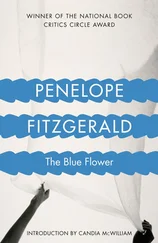I drooped around after him for pretty much a decade, during which his circle of friends, to some degree, took me up and conducted the kindest of intellectual experiments upon this peculiar child. So it was that I found myself building sandcastles (one, for example, of the Gesù in Rome) with the right-wing philosopher John Casey, being introduced to green Chartreuse by the composer Robin Holloway who later wrote me properly critical letters about my work, which he did not like; and becoming a friend for life of my idol’s lodger, with whom he would play piano duets, Roger Scruton, who was then a boy of twenty-seven with hair that flamed over a face that also burned white with seriousness. The architectural historian David Watkin taught me to dance the galope and asked me to marry him, which he must have forgotten, or at any rate I notice that we don’t seem to be married. They gave me books to read and were, I suppose, waiting to see what the result would be when I had ground my way through whatever it was: The Anatomy of Melancholy, Hadrian VII, The Quest for Corvo , all of Firbank, Memoirs of a Mathematician . Unknowing, I was a kind of Maisie. Their patience with me and tolerance of my mooncalf presence among them was admirable. I was a bit of a liver-enriched goose, I’m afraid. What kind of egg they expected me to lay I cannot imagine, but not this life that I am laying out now, I’m sure. I still possess the label of the 1955 Veuve Clicquot bottle that we shared, perhaps eight or ten of us, on my fifteenth birthday, over lunch. It is, with all my possessions, not to hand but in store, awaiting a return to a life unpacked.
Before these loves, though, came rupture and detachment from my father’s house in my early teens. He and I never exchanged words about it, but I left his home and did not come properly back to it again, and certainly not to live.
I had become compact of lies, a child of flies, a beelzebubbler, as my stepmother apprehended it, and she did not, quite understandably, want me near her children. I suspect too that I was growing to resemble my mother and that my father could not face another unhappy marriage; since the only thing that was wrong with his marriage to my stepmother was me, might there not be benefit for all concerned were I to be removed from the sum?
I had always fancied boarding school and now its allure was unequivocal. Several prospectuses were sent for. I liked the look of Cranborne Chase and Bedales. It turned out that my mother had left enough money for me to be sent away. I sat scholarships.
It was to Sherborne School for Girls in Dorset that I won a major scholarship. The adjustment from a school whose houses were called Argyll, Buccleuch, Douglas, Moray and Strathmore to an establishment for young ladies of England and the Commonwealth was actually not all that painful. The only sad thing was that I lost all trace of a Scottish accent, though my children tell me my voice changes as we cross the border north.
In the scholarship examination I had scored fewer than ten points out of a hundred for mathematics and these points given merely for the sake of face. A special division below all the others was created for me and for a girl who had been terribly damaged in a car accident. We were patiently taught by a Miss Hayward, who challenged us with such problems as: ‘You have a curtain rail that is four feet long. You have four curtain hooks. At what intervals do you place the curtain hooks?’
My housemistress was a Scot, Jean Stewart, and a place had been found for me under her care because a glamorous-sounding girl named Augusta had of a sudden decided to leave. I was no substitute for this Augusta. Huge, foreign, by now crop-haired, queerly named and in my old school uniform, I was an odd fish.
I learned to love my housemistress, who combined suffering with beauty and reticence. She was a devout Scots Presbyterian, later retiring to the Western Isles and becoming a minister, but I simply could not abide the diamantine, pearly, glorious heroine of a headmistress, the radiant Miss Reader-Harris, later Dame Diana Reader-Harris, who is revered beyond her death to this day. I have no doubt that she was good and that she had star quality of the regal, cinematic sort. She would have made a wonderful-looking wife for a dictator. I am almost certain that she, who wore a large, three-stoned diamond ring, had, poor woman, like so many of our other teachers, lost her fiancé in the war.
Etiquette demanded that we say goodnight to our housemistress with a curtsey and a handshake each night, also that we curtsey each time we encountered the headmistress in whatever circumstance we found ourselves. I was in the sanatorium with flu when the headmistress made a visit, and hopped out of bed to curtsey to her. She smouldered bluely. Her crown of white hair, her aura of lavender, her good tailoring, her well-manicured hands, her lovely face, all flinched. She knew satire when she saw it and she didn’t like it. She’d taken me on halfway through a term and I was absolutely not going to prove to be a disappointment after all the Christian kindness she had shown me.
So it was that I discovered institutionalised duplicity. That’s a harsh term for it, but how I got happily by at Sherborne was by succeeding academically and, within that cloak, doing whatever I wanted, so that when there was a putsch against smokers, I could say that I’d been smoking which was an expellable offence, but they didn’t want to get rid of me because, in their terms, I might be a success and go up to university, Somerville or Girton. It was understood that one would not apply to King’s College Cambridge, the only ‘mixed’ college at the time.
At first I didn’t have to work very hard at all because my Scottish school had been so far in advance of its English counterpart. This was bad for me and I hung about idly reading novels. We were permitted five items on our dressing table, including a picture of our parents. I haven’t owned one of those ever. There were dormitories divided into cubicles and a few rooms for sharing. Nothing at all about boarding school struck me as more disciplined, demanding or impinging than had been my recent experience of life at home. I’d have been happy to spend the holidays at school, and in some cases did spend half-holidays and other times with some poor teacher, mainly Mr Hartley who taught Scripture and referred to the Minor Prophets as ‘this Johnny Haggai’, and ‘that fellow Habakkuk’. We all longed for him to say ‘this Johnny Jesus’.
It didn’t strike me at the time that my departure to Sherborne might be the cause of any grief to my father and I have no idea whether or not it was. He sent the occasional elegant postcard with an architectural feature depicted on it, for example the star-pierced dome of the Royal Bank of Scotland in St Andrew Square. He was not a rich man and travel was expensive. He had a new family and I was very little fun for them to be around. On Sundays, we had to write to our parents. Very soon I started writing to other people’s parents instead of my own.
I had big feet with my full name written on the soles of my shoes. We were often at prayer, so when we knelt I could not avoid giggles from behind.
(Liv, who was once a chorister, has just told me, to my outrage on behalf of the bride, that she sang once at a wedding where the groom had taken the precaution before the service of writing on the bottom of his shoes: ‘HELP ME’.)
I’d only the sketchiest idea of how to make friends, as must by now be clear. Throughout my years at Sherborne, I was often ill and spent a disproportionate amount of time in the sanatorium being nursed by Sister Parrott and Nurse Greene, who in winter put goose fat on one’s nose against chapping.
On one such visit, I was in a sickroom with the eldest sister of a family from Scotland. She turned out to be the oldest of six. She was Jane Howard. Then came Katie who was apparently in my year, then Caroline, then Alexander, then Andrew and Emma, the twins. They lived on an island in the Hebrides. Its name was Colonsay.
Читать дальше











